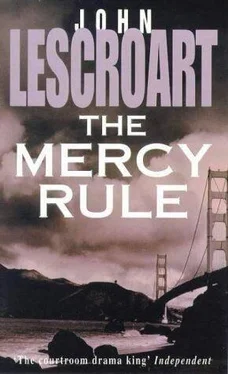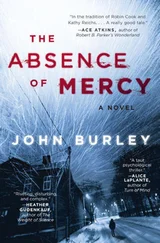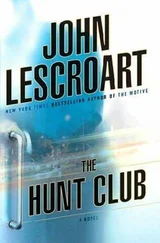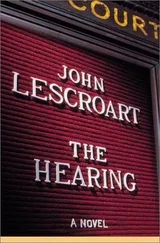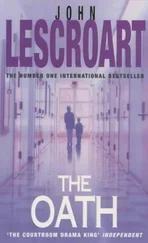John Lescroart - The Mercy Rule
Здесь есть возможность читать онлайн «John Lescroart - The Mercy Rule» весь текст электронной книги совершенно бесплатно (целиком полную версию без сокращений). В некоторых случаях можно слушать аудио, скачать через торрент в формате fb2 и присутствует краткое содержание. Жанр: Триллер, на английском языке. Описание произведения, (предисловие) а так же отзывы посетителей доступны на портале библиотеки ЛибКат.
- Название:The Mercy Rule
- Автор:
- Жанр:
- Год:неизвестен
- ISBN:нет данных
- Рейтинг книги:5 / 5. Голосов: 1
-
Избранное:Добавить в избранное
- Отзывы:
-
Ваша оценка:
- 100
- 1
- 2
- 3
- 4
- 5
The Mercy Rule: краткое содержание, описание и аннотация
Предлагаем к чтению аннотацию, описание, краткое содержание или предисловие (зависит от того, что написал сам автор книги «The Mercy Rule»). Если вы не нашли необходимую информацию о книге — напишите в комментариях, мы постараемся отыскать её.
The Mercy Rule — читать онлайн бесплатно полную книгу (весь текст) целиком
Ниже представлен текст книги, разбитый по страницам. Система сохранения места последней прочитанной страницы, позволяет с удобством читать онлайн бесплатно книгу «The Mercy Rule», без необходимости каждый раз заново искать на чём Вы остановились. Поставьте закладку, и сможете в любой момент перейти на страницу, на которой закончили чтение.
Интервал:
Закладка:
Now the elegant interior of the place – marble walls and frescoed ceilings – had a modern infrastructure. It was newly wired for computer terminals in nearly every room. Over the objections of many of the judges, including Giotti, who felt that the courts should be open and accessible to the people without hindrance, security was tight. Video cameras hovered at each entrance, with a bank of television screens overseen by uniformed deputies at a central command post by the front doors. Downstairs, a private, indoor parking area for the judges led to an equally private workout room and gym for the staff.
But no tennis courts, for which Giotti had lobbied strenuously. According to the experts there hadn’t been room.
This was an opportunity for the judge to remember it, and he continued raving at his wife, although quietly, to be sure. ‘We should join a private club.’
‘No, we can’t do that, Mario. We’ve discussed it. Let’s leave that now.’
‘No. I don’t agree.’
Her eyes narrowed in resolve and her fingers tightened on his leg, just above his knee, a warning. Pat was a powerhouse, physically strong and mentally tough. The monitor of the judge’s behavior outside of the court, the guardian of his precious reputation. He rarely disagreed with her judgment in these areas, but today he did. ‘People can be discreet,’ he said. ‘We don’t need to make friends, have private dinners. But the class of people-’
‘Don’t use that word, please.’
A frustrated expression. ‘You know what I mean.’
‘And I also know we can’t refer to it. Ever.’
So Giotti went back to his original complaint. ‘A hundred million dollars and they couldn’t figure out a way to put a court in the basement. I solve more difficult problems three times a week. Fucking bureaucrats.’
Pat was by now reassured that her husband couldn’t be heard, but his profanity when angry still was a source of frustration. Her fingers tightened around Giotti’s leg again. It made her crazy – he didn’t seem to realize who he was sometimes. Or, more truthfully, he seemed to want to forget that a federal judge was not an ordinary citizen. All of them breathed rarefied air and were accountable on a different level.
And her husband particularly – a centrist Democrat – had to be ever vigilant. There were rumors that he was in line for the Supreme Court at the next vacancy. Surely, he’d earned it: the lifetime of sagacious decisions, published majority opinions, brilliant dissents, the millions of travel miles as he flew the circuit, the sacrifice of abandoning all their old friends, all of the city’s rich social life, on the altar of judicial purity.
But that last wasn’t unique to the Giottis. To avoid any appearance of conflict of interest, and because of the awesome responsibility of the issues they must daily decide, most, if not all, federal judges wound up cutting off their preappointment relationships – both business and personal. That was part and parcel of the life of the federal judge, and those who didn’t know it at their appointment soon found out, sometimes to their great dismay and disappointment.
Even despair.
They couldn’t have friendships in the usual meaning of the word. It wasn’t so much that people couldn’t be trusted. No, it was more that if he served long enough – and the job was a lifetime appointment – sooner or later a federal judge would be called upon to make a decision that would impact nearly everyone he had ever known.
A casual friendship, an innocent prejudice, a personal comment, an inappropriate liaison, too great an attachment even to a son or a daughter, or a wife – any of these could sully the sacred objectivity of the law.
Pat Giotti knew that this was why all the federal judges were such a family. And in that artificial and ethereal family, where there were few real friendships and little outside influence, reputation was all.
Of course, she knew, Mario’s profanity wasn’t going to lose him his job, but it might lower the judge in the eyes of even one citizen, and Pat Giotti, bred to the culture of the Ninth Circuit, would not abide that. She, too, had made great sacrifices to further her husband’s career – her own friendships, her fun, the intimacy of their four children, her youth. Sometimes, she thought in her dark moments, her very life.
But these thoughts passed. They couldn’t be allowed. It had all been worth it. Mario Giotti was a federal judge now. He was someday, with luck, going to the Supreme Court, perhaps as its chief justice, the culmination of their every dream, the goal for which they had never ceased laboring. Together.
The couple had come back and the man was blathering on. ‘I’m just so sorry,’ Joe was saying. ‘I get too competitive. I shouldn’t have-’
‘Don’t be silly,’ Pat interrupted. ‘Spirit of the game. You don’t play if you don’t want to win, isn’t that right, Mario?’
The judge pulled the towel down from the bridge of his nose. His eyes were mild, the smile benign. ‘It’s one of the absolute truths, Joe.’ He took a long sip of the bottled water. Then, ‘Don’t worry about me, I’m fine. Could’ve happened to anybody.’
Helen Taylor reclined in the oversized marble bathtub, soaking in scented oils. The disastrous meeting with Graham on Friday night had exhausted the family. After her children had gone, she and Leland went out to a late supper at the Ritz-Carlton and afterward, keeping the unpleasantness at bay, they’d danced at the Top of the Mark. The rest of the weekend had been given over to society events. They’d had no private time to talk. Until now. Leland knocked at the bathroom door and she told him to come in, which he did, taking a seat in the brocaded wing chair that graced the wall opposite the bath. Crossing one leg over the other, he leaned back, enjoying the sight of his wife in the water. He was wearing the pants to one of his Savile Row suits, a white shirt and dark blue tie, black shoes, black socks with garters.
Inhaling through his nose, he seemed to have suddenly encountered an off scent. His voice had a reedy tone, highly pitched and phlegmy. ‘I suppose we’re going to have to pay for Graham’s defense, aren’t we?’
Helen took a moment before answering. ‘I keep hoping they’re not going to arrest him again.’
‘No.’ Leland was certain. ‘It’s a matter of time, but they will. I wouldn’t squander my hope there.’
His wife sighed and moved. The water lapped gently once or twice. ‘Then I suppose we must. Pay his attorneys, I mean. I know he can’t.’
The phantom scent wasn’t getting any better. Leland held his chin high, turning his head from one side to the other, as if trying to place it. ‘We’ll have to keep it from George.’ He paused. ‘Perhaps it should be a loan this time. A real loan.’
‘Through the bank? If it’s through the bank, it would be impossible to keep from George.’
Her husband was shaking his head no. ‘I was thinking of a personal loan. We could-’
But another thought had crowded in, and Helen interrupted. ‘You don’t really think he’ll go to jail, do you?’
‘I don’t know, Helen. If he did kill his father for the money-’
‘Graham couldn’t have done that, Leland. It’s impossible. That’s not who he is. He might have helped him die, but it wasn’t for money.’
Her husband raised his eyebrows, a parlor trick of impressive eloquence. He lived in a world entirely circumscribed by money, and believed that to a substantial degree everything was connected to it. But there was no need to make this point to his wife, and he moved along. ‘I’m thinking, though – back to the loan now – that if he doesn’t get convicted, we might be able to get some reasonable behavior out of the boy, at least until the debt was retired.’
Читать дальшеИнтервал:
Закладка:
Похожие книги на «The Mercy Rule»
Представляем Вашему вниманию похожие книги на «The Mercy Rule» списком для выбора. Мы отобрали схожую по названию и смыслу литературу в надежде предоставить читателям больше вариантов отыскать новые, интересные, ещё непрочитанные произведения.
Обсуждение, отзывы о книге «The Mercy Rule» и просто собственные мнения читателей. Оставьте ваши комментарии, напишите, что Вы думаете о произведении, его смысле или главных героях. Укажите что конкретно понравилось, а что нет, и почему Вы так считаете.
